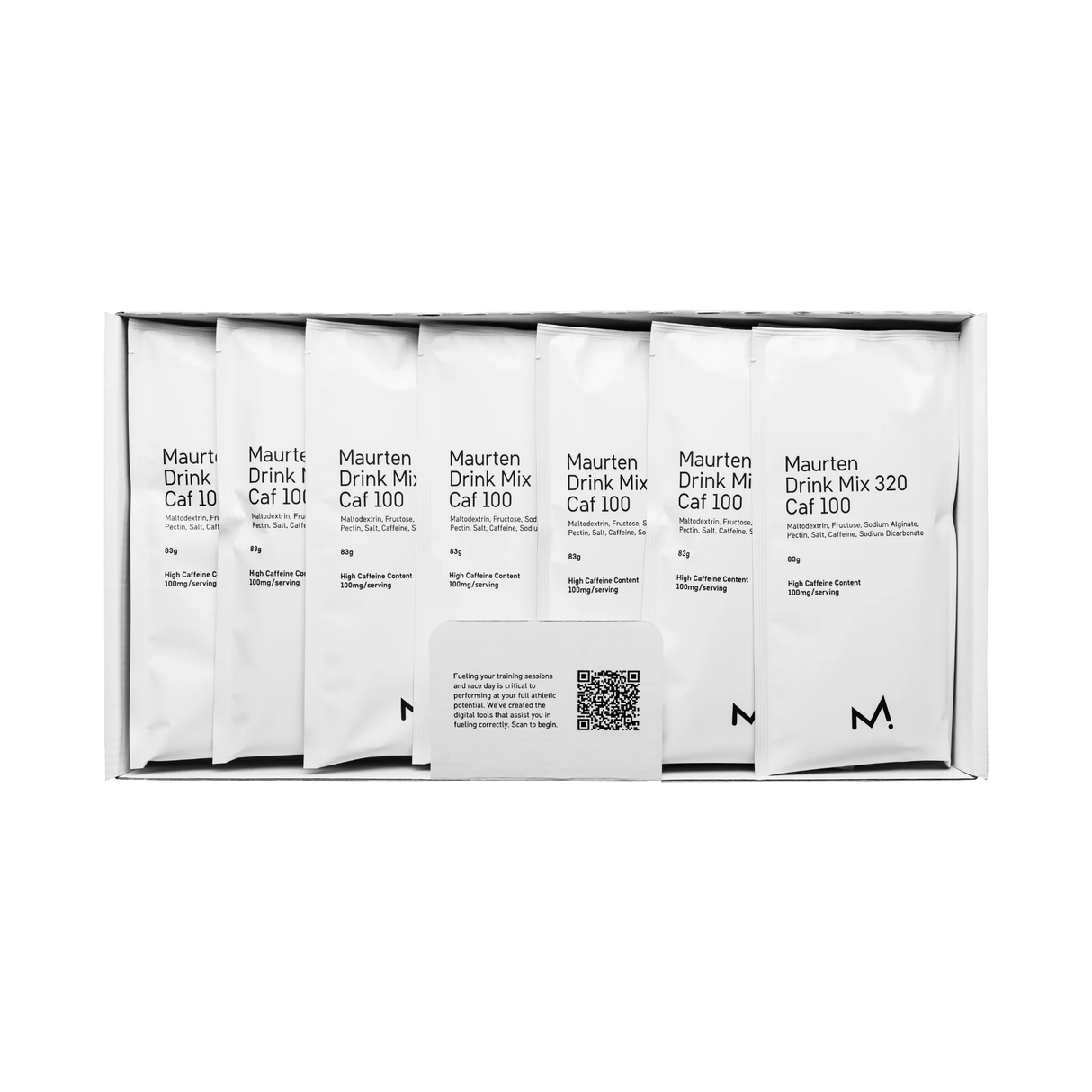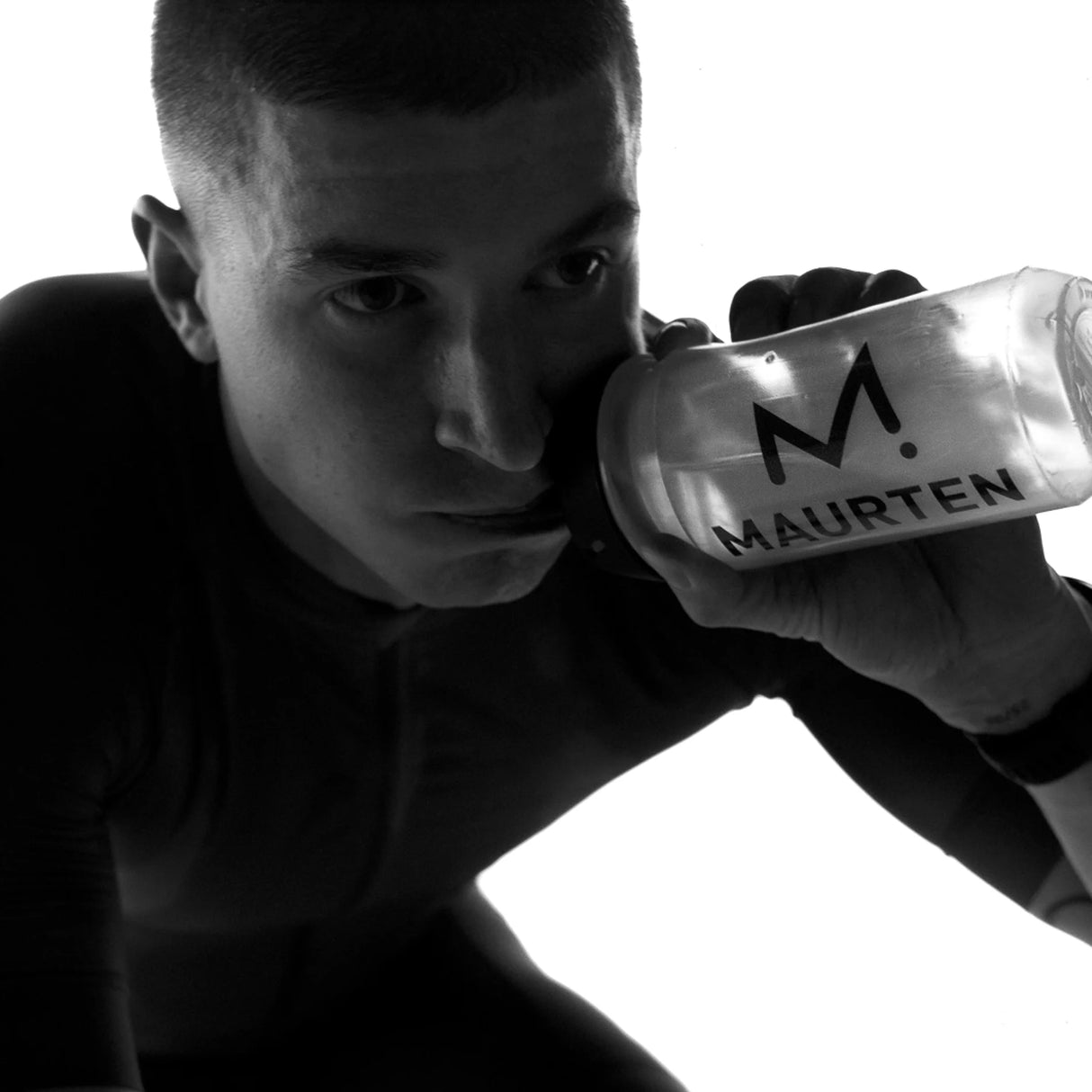MAURTEN DRINK MIX 320 CAF 100 Sports Drink
MAURTEN DRINK MIX 320 CAF 100 Sports Drink - Singles is backordered and will ship as soon as it is back in stock.
Nutritional values
Nutritional values
| * Single serving = 1 Bag | Per 100g | Per serving* (83g) |
| Energy | 386 kcal | 320 kcal |
| Fat | 0.0 g | 0.0 g |
| Saturated Fat | 0.0 g | 0.0 g |
| Carbohydrates | 95.0 g | 79.0 g |
| Sugar | 45.0 gr | 37.0 g |
| Protein | 0.0 g | 0.0 g |
| Salt | 760 mg | 630 mg |
| Caffeine | 120.5 mg | 100 mg |
| * Single serving = 1 Bag | Per 100g | Per serving* (83g) |
| Energy | 386 kcal | 320 kcal |
| Fat | 0.0 g | 0.0 g |
| Saturated Fat | 0.0 g | 0.0 g |
| Carbohydrates | 95.0 g | 79.0 g |
| Sugar | 45.0 gr | 37.0 g |
| Protein | 0.0 g | 0.0 g |
| Salt | 760 mg | 630 mg |
| Caffeine | 120.5 mg | 100 mg |
Ingredients
Ingredients
Allergens
Allergens
Delivery and Returns
Delivery and Returns
Shipping costs Germany
Shipping costs Austria
Shipping costs Switzerland
Shipping costs all other EU countries
Import Fees / Customs
Local Pick-up
Returns
Sportswear & Equipment can be returned or exchanged within 30 days as long as the products have only been tried on but not used. As a hygiene item, underwear cannot be exchanged once the packaging has been opened. We ask that send the products to the following address:
Sporthunger GmbH
81541 Munich
We recommend sending returned goods with shipping tracking / tracking number. Please include a note with your name and order number with the shipment.
- 80 g carbohydrates per serving (500 ml water).
- High gastrointestinal tolerance
- Based on natural ingredients
- No flavor additives or preservatives
- Rapid energy absorption thanks to hydrogel technology
- Suitable for vegans
A 320 drink mix provides almost 80 grams of carbohydrates, which are absorbed better than conventional sports drinks thanks to the hydrogel technology. When it comes into contact with stomach acid, it turns into a hydrogel and encapsulates the carbohydrates. The gel-like network supports the problem-free transport through the stomach to the intestines, where the energy can finally be absorbed.
Caffeine is known for its stimulating effects. Above all, alertness, the ability to react and muscular endurance are increased, while fatigue and exhaustion are delayed. Depending on the study, 3 to 6 mg of caffeine per kg of body weight is recommended, but the reaction to caffeine, eg through habituation, is very individual. Caffeine can also have a negative effect on the stomach. We recommend everyone to approach their own limits in training.
Application: Mix the contents of one sachet with 500 ml water and shake the bottle until the powder has completely dissolved. For the correct formation of the hydrogel, the mixing ratio should be strictly observed.
Manufacturer : Maurten AG, Gibraltargatan 1a, 41132 Gothenburg, Sweden

About Maurten












